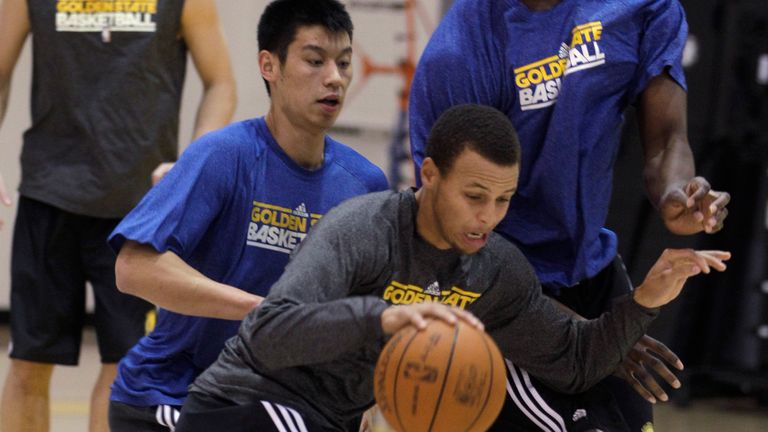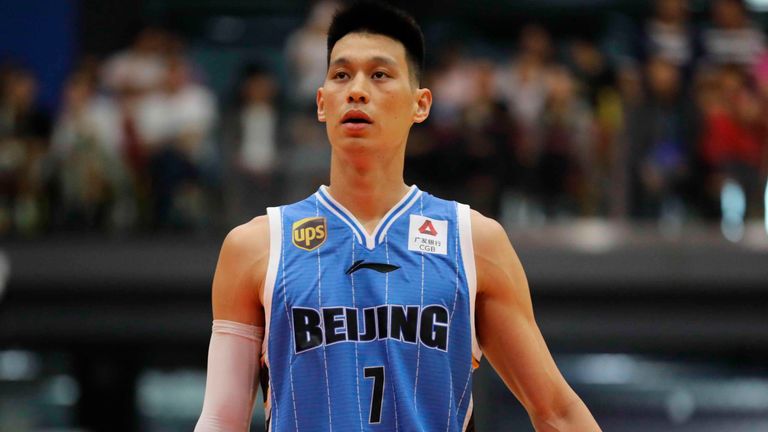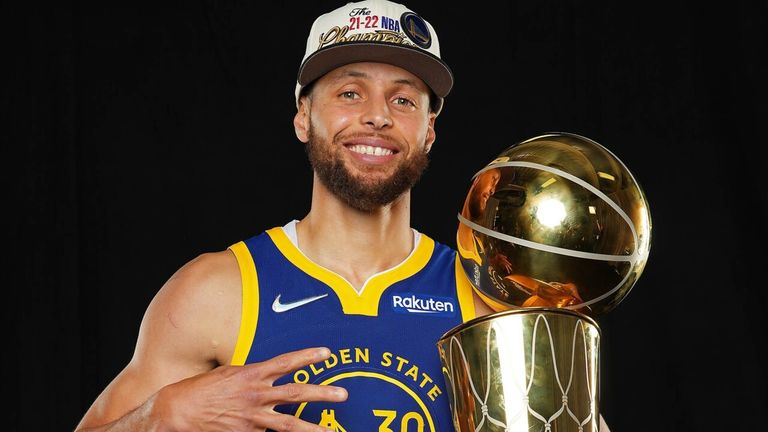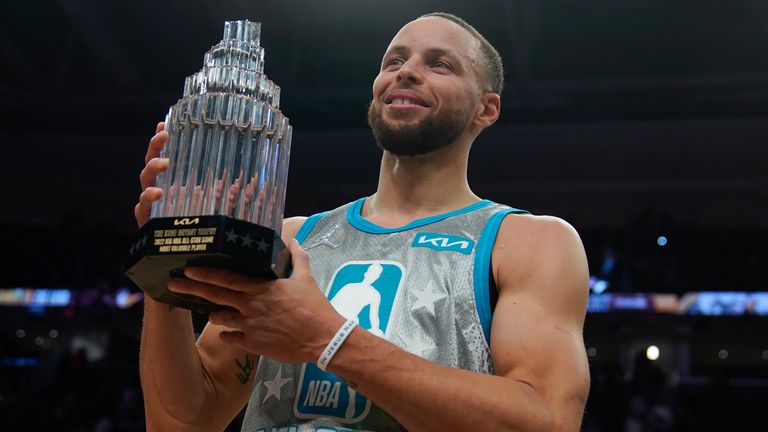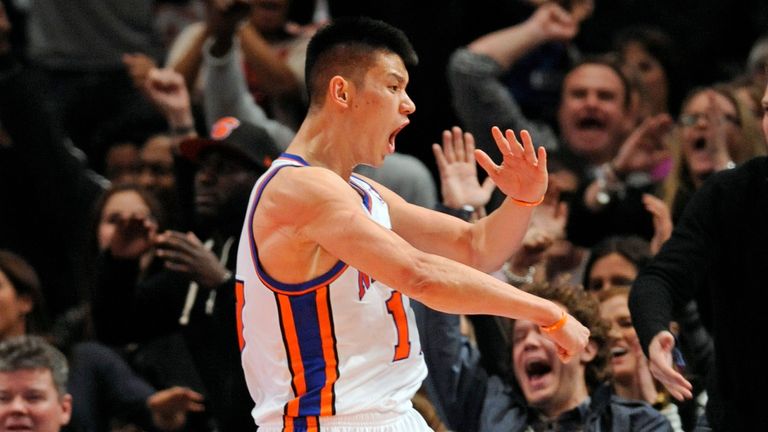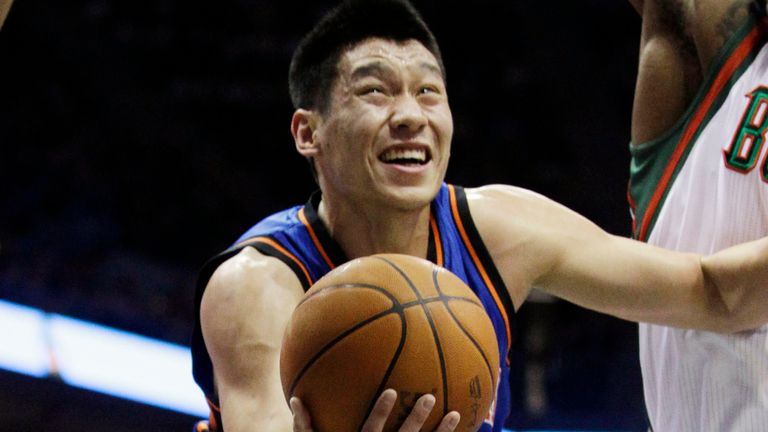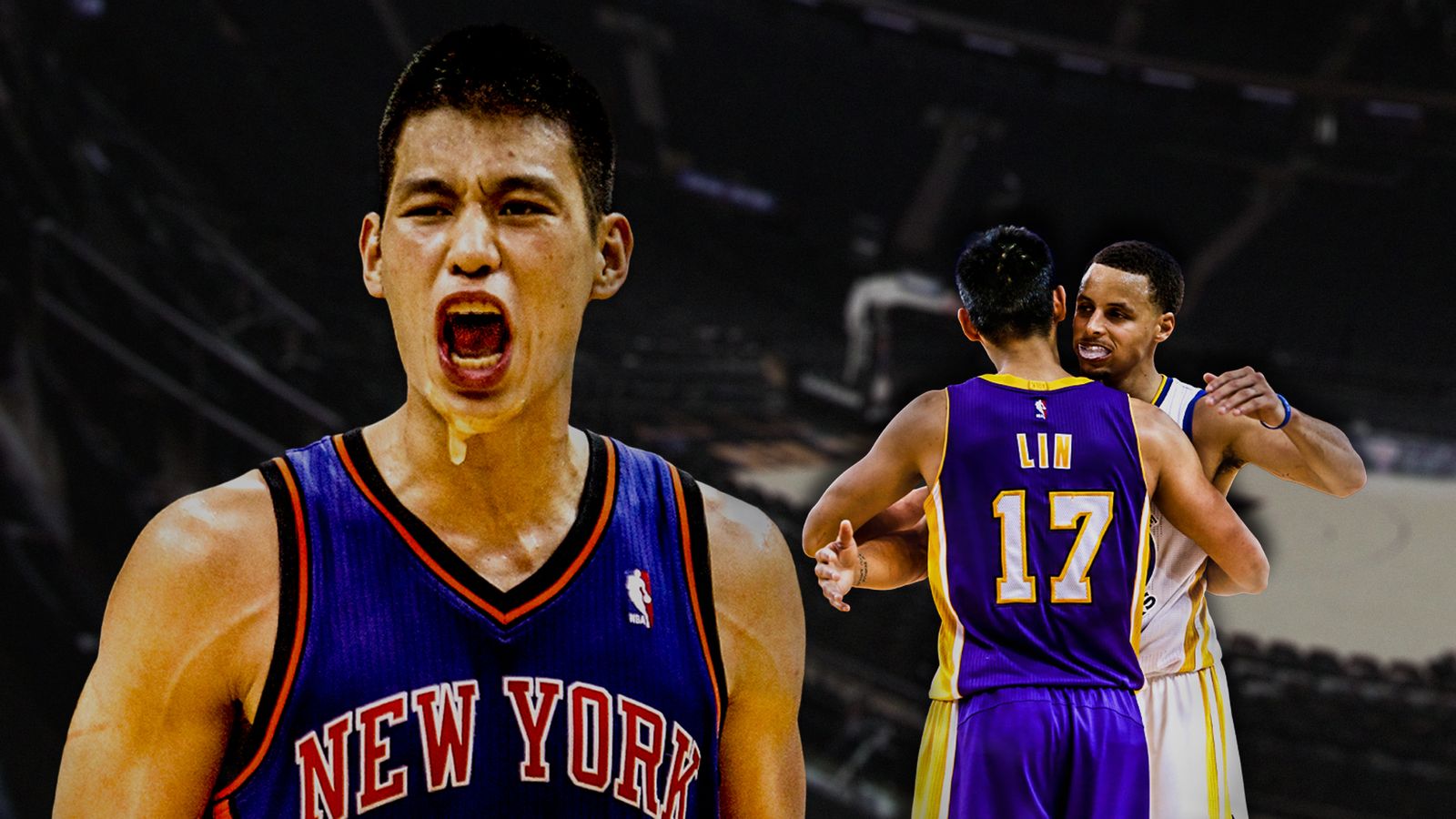
San Francisco was the epicentre of the NBA universe this summer and as a Bay Area boy raised in nearby Palo Alto, Jeremy Lin will no doubt have been aware of the party fervour as the Golden State Warriors celebrated their fourth NBA championship in the last eight years.
But at one time, Lin himself was the epicentre of the NBA universe. Seasoned fans will remember ‘Linsanity’ just over a decade ago, when the point guard became the talking point of the entire league with a run of magnificent displays for the New York Knicks.
Lin emerged from the back of the rotation to capture the hearts of the city, as well as the attention of the global basketball audience with his performances.
Nowadays, Lin plays professional basketball in China and focuses on his philanthropic work through the Jeremy Lin Foundation as well as other business and personal interests. He watched alongside the rest of the world as Stephen Curry produced a masterclass in his sixth NBA Finals, to win Finals MVP and propel the Warriors to the 2022 title.
What many people don’t recall is Lin and Curry were once team-mates at Golden State in what was Lin’s first season in the league and the four-time champion’s sophomore year.
The Warriors were in a completely different place in the summer of 2010, when Lin signed with the team, compared to where they are now. At that point, the franchise had fewer than half of the seven championships they now possess, and two of those other three were won as the Philadelphia Warriors rather than Golden State Warriors.
The team was trying to pivot to a new era at the start of the last decade but little did they know back then, with the seventh pick in the 2009 NBA Draft they had chosen a player who was going to drag not just the team, but the NBA itself, into a whole new epoch.
Lin on Curry’s early days and will to succeed in his own way
Stephen Curry has revolutionised basketball and people’s conception of the possibilities of the 3-point shot.
We’re in a whole new age of the game where players with the requisite ability are encouraged to shoot from as far as their range extends.
But in the early stages of Curry’s Warriors career, the revolution he would spearhead – and the way he was trying to do it – were not always received well by his then-coach, Keith Smart.
Lin remembers well how their basketball ideologies failed to marry up.
“I was with him my rookie year. The coach that we had didn’t believe that much in Steph and would bench him a lot, get on him, yell at him a lot, was just really tough on him,” Lin, who is now Global Ambassador for education technology company LingoAce, told Sky Sports.
“It almost became normal that every fourth quarter, he would get benched for a certain stretch. I felt that would shake any player to some degree and even though his confidence would kind of waver a little bit – because of the way that he was being coached – he had a deep, deep, very strong belief that he was a great player and that he would become a great player, and that the way things were going at that time was not how they were always going to go.
“The next day he’d come in and he never tried to change his game too much. He tried to stay aggressive. There’s just this aura that he had of ‘There’s no shot I can’t hit. I can hit and I can catch fire at any point. If you give me one shot and it goes in, you might be in trouble the rest of the night’.
“He was always believing in who he was and how he could play, and the shots he can make, and sticking to it. Sometimes it would get him benched, but other times it allowed him to take over the game – as long as he stuck with it and didn’t change who he was as a player. He felt like over time people would understand, ‘Hey, I’m great and I will develop the freedom and trust that I deserve as a player’.”
That’s the kind of devout self-belief you need if you’re going to be one of the very, very few players who truly change the game.
Curry had that belief, but back then, he had a lot to work on skills-wise in terms of rounding out his abilities as a player. Lin is impressed, but not at all surprised, at the strides Curry has made developing all the other facets of his game, aside from his much-celebrated shooting.
“He’s definitely improved in so many different areas of his game,” Lin said. “He’s extremely competitive and that’s a skill in itself. It has helped him to do that.
“At that time when I was playing against him in practice, he was struggling with defense and defending at the NBA level. I had a lot of speed and so I was always trying to attack him and make plays against him. There were definitely times where I made a bucket or something and he would be really upset at himself – not disrespectful to me in any way – but just there’s such a standard that he held himself to.
“It could have been his turnovers. You know, because at a certain point, he was pretty turnover-prone, a little too loose with the ball. It could have been his defense, it could have been little things like his rebounding or just his ability to manage the tempo of the game. There are so many areas of his game that he has improved to the point of winning championships.
“When the Warriors are healthy, they’re championship-contending every single season. It takes a lot to get to that level.”
Indeed, and Curry is the man leading that charge for them – and you imagine it will be that way for the foreseeable future until his skills begin to wane.
Although Lin recognised Curry’s prodigious talent, unsurprisingly, the 33-year-old did not foresee the gravity of the impact his then-colleague was going to have on the game.
“I did not think he was going to be that good,” Lin said. “But I didn’t understand why Steph was treated the way he was in that one season I was there. I felt like he was really, really good. As poorly as he was treated, he still averaged 18 or 19 points. I thought, ‘Imagine when this guy gets a couple more years of experience under his belt, and really gets the reins, the keys to the franchise, what he will be able to do’.
‘So, I always knew he was going to be great. But I didn’t know he was going to be like legendary, revolutionary, transforming the entire course of basketball. I did not expect all of that.”
Linsanity and its impact – personally and societally
Curry’s flame may have burned longer than Lin’s but the Harvard graduate’s shone just as brightly, or you could argue in some ways even more so, given how concentrated the attention was on him at the height of Linsanity.
There was a unique kind of fandom and mystique that surrounded it all, which is different to anything which went before or which has come since. It is now the subject of a documentary film called ’38 at the Garden’ which premiered at the Tribeca Film Festival in New York City earlier this summer before it airs on HBO this autumn.
The stretch of games incorporating Linsanity kicked off at the start of February 4, 2012, when Lin – after playing just 55 minutes all season, and being very much at the fringes of the roster – came out of nowhere to log 36 minutes against the New Jersey Nets.
The Knicks had lost 11 of their previous 13 games, but Lin came into the lineup and changed things dramatically – capturing the attention of the basketball-watching world in the process.
He scored 25 points, dished out seven dimes and grabbed five rebounds in a 99-92 win for the Knicks against their nearby rival.
It kicked off an incredible run for the guard, who became the first NBA player to score at least 20 points and have seven assists in each of his first five league starts. Lin also scored a total of 89, 109, and 136 points in his third, fourth and fifth career starts, respectively – all three totals are the most by any player since the merger between the American Basketball Association (ABA) and the NBA in 1976-77.
The ‘Linsanity’ name itself came from a game on the Valentine’s Day of that month when, with less than a second remaining in the game, Lin made a game-winning 3-pointer in the Knicks’ 90-87 win over the Toronto Raptors, with whom he later won a title ring in 2019.
The basket so amazed the Los Angeles Lakers who were watching on television that veteran player Metta World Peace ran past reporters, waving his arms wildly and shouting: “Linsanity, Linsanity!”.
Four days earlier, though, came the spark that ignited the “insanity” part of the name and the performance after which the movie is named. Lin’s 38 points against Kobe Bryant and those same Lakers at Madison Square Garden will go down in Knicks legend forever.
Sadly though, everything came to an abrupt end even quicker than it had begun.
Just six weeks later, and a fortnight after the resignation of coach Mike D’Antoni, Linsanity was over as Lin was ruled out with injury requiring surgery to repair a torn meniscus.
He never played for the Knicks again – something totally unimaginable at the height of the craze. Overall, Lin played in 35 games for the Knicks, averaging 14.6 points and 6.2 assists per game.
Much more than that though, he was a cultural icon who broke down barriers. Lin wasn’t the first Asian-American to play in the NBA but he was by far the most prominent and noteworthy and the sociological impact of his NBA career has been hugely significant.
It’s worth pausing for a second, though, to imaging being the human being at the centre of all that. It wasn’t easy at the time and it’s been something that Lin has had to learn to live with since.
“I think for me as a person, it’s been an evolution from trying to run away from it because I felt like I didn’t like a lot of the side effects of Linsanity,” he explained. “Some family issues that it caused, all the privacy that was taken away from me overnight, and the paparazzi chasing down me and my family and my friends… just a lot of scary things that had happened.
“There were also just the expectations of the world, almost turning me into some type of superhero. I became this phenomenon and I felt like I lost my humanity in the middle of it.
“Then eventually, I started to understand racism at a better level, at a deeper level. For so long, I tried to run from being ‘the Asian basketball player’, I just wanted to be a great basketball player – because my whole life, everyone was just talking about [my ethnicity].
“I just wanted people to talk about my basketball skills for once, so as I started to run from that, I started to really open my perspective, seeing what racism really does and how embedded it is and how deep it is.
“Whether it’s overt racism, or the microaggressions, or the systemic injustice, or all of the different things – there are so many layers to it and that’s when I really started to embrace what Linsanity meant, as a person. Culturally, I realised, this moment is much more than basketball, it’s much more than that season, it is much more than just the New York Knicks and Jeremy Lin – this is a story that will be told for years and years and years and that has shattered so many stereotypes, and so many boxes that society has tried to put on minorities.
“That’s where I’m at with it now and I’m very grateful. So now, I try to tell the story in meaningful ways, beyond just trying to glorify myself for what I did on the court. But to really talk about what that moment meant to a lot of people and why it meant so much.”
Jeremy Lin is Global Brand Ambassador for LingoAce – an education technology company and leading language learning platform
The live basketball continues on Sky Sports with the WNBA, subscribe to watch the live action.
